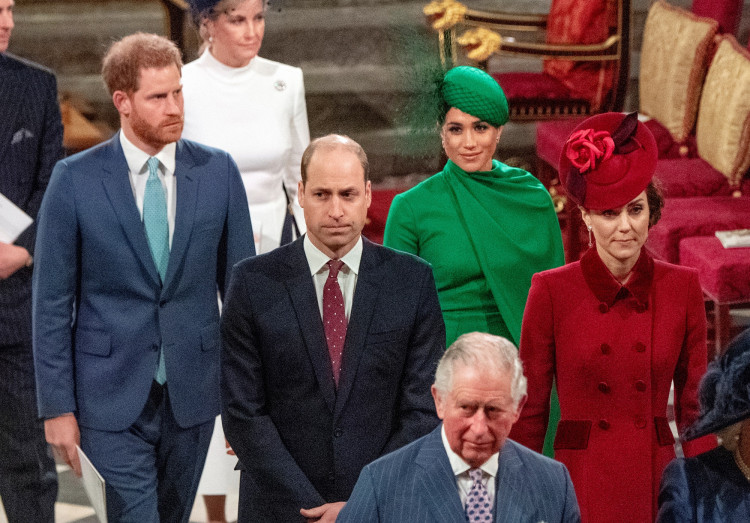Prince Harry's desperate attempts to secure protection for his family have exacerbated the already strained relationship with his father, King Charles III. When Harry returned to the UK in May to celebrate the 10th anniversary of the Invictus Games, a notable absence loomed over the event: his father. According to sources close to the Duke of Sussex, the two were unable to meet during Harry's visit, a situation attributed to the King's "full schedule." However, insiders suggest a deeper issue at play.
Harry, who has been embroiled in a legal battle for security for over four years, believes that his father has the power to reinstate the protection he seeks. Buckingham Palace has maintained that the notion of Harry's security being in Charles' hands is "wholly incorrect." Yet, multiple sources confirm that security remains the primary issue causing friction between father and son.
Despite a seemingly positive meeting in February following King Charles' cancer diagnosis, communication has deteriorated. "He gets 'unavailable right now,'" a friend of Harry's told PEOPLE. "His calls go unanswered. He has tried to reach out about the King's health, but those calls go unanswered too."
Prince Harry remains deeply concerned for the safety of his wife Meghan Markle, and their children, Prince Archie and Princess Lilibet. According to a royal insider, "Harry is frightened and feels the only person who can do anything about it is his father." Another source close to the situation added, "Harry is determined to protect his own family at all costs."
This concern was further highlighted in the ITV documentary "Tabloids on Trial," where Harry expressed fears that negative press could provoke a violent attack on his wife. "All it takes is one lone actor," he said, explaining why he has not brought Meghan and their children back to the UK.
Harry's battle for security has also played out in court, where he lost his bid to restore taxpayer-funded protection earlier this year. He plans to appeal the decision, but the dispute has deepened the rift with his father. Constitutionally, the monarch has no governmental power in the UK, and the authority to grant police protection lies with the Executive Committee for the Protection of Royalty and Public Figures (RAVEC), which operates under the UK government. Harry, whose offer to personally cover the cost of police protection was also rejected in court, feels that as King, Charles could intervene to ensure the protection is extended.
The security issue has created an insurmountable wall between Harry and Charles. "The conversation has now shifted from frustration to complete silence from the King," claimed the friend. This silence has only heightened Harry's anxiety about his family's safety, leading him to speak out in public forums and interviews, further straining the relationship.
Sources close to the Duke and Duchess of Sussex, now settled in Montecito, California, say the palace is mindful of the historical parallels with Princess Diana, who eclipsed the royal institution after her departure. "Charles' fear is a repeat of the past," an insider explained. "Seeing his son leave with his wife was not part of the plan."
Safety concerns were a key factor in Harry and Meghan's decision to leave royal duties. Meghan has cited negative press and lack of royal support as reasons she contemplated suicide. "The couple didn't feel they had a choice," said the friend. "The only option was to leave - for their sanity."
At the Sandringham Summit in January 2020, Harry was confident that their security would remain intact during their transition. Court documents reveal that the late Queen Elizabeth deemed it "imperative" for the Sussexes to have "effective security" post-departure. Despite this, Harry was informed weeks later that their police protection had been withdrawn, a decision enacted by RAVEC, whose membership includes the Home Office, the Metropolitan Police, and the Royal Household.
Harry's perception that his father could influence RAVEC's decision has fueled his frustration. Joe Funk, senior vice president of Torchstone Global Security, which oversees the couple's private protection in the U.S., noted, "The UK government acknowledges numerous threats against them, but we are not privy to specific details due to lack of cooperation."
Neil Basu, former head of counterterrorism for the Metropolitan Police, has stated that both Harry and Meghan had among the highest threat assessments within the royal family. "Harry's military service, his global recognition, and his marriage to a mixed-race woman all contribute to his high threat level," Basu told PEOPLE.
With both sides entrenched and Prince William seemingly aligned with his father, any hope for reconciliation appears distant. Some close to the palace suggest that Harry's public revelations have compromised the family's trust. Others close to Harry argue that if he had proper security, he wouldn't need to speak publicly to pay for it. "If the matter of security is resolved," said the friend, "it's 'swords down.'"
Ultimately, Harry's desire to rekindle his bond with his father remains. "He's not asking his dad for a nicer house or nicer cars," said the friend. "He's asking because of the reality of the situation. He is at risk."





